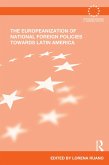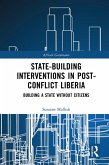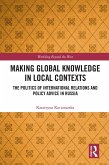In this volume Lohaus develops a comprehensive analytical framework to compare international agreements in the areas of prevention, criminalization, jurisdiction, domestic enforcement and international cooperation. Outcomes range from narrow enforcement cooperation to broad commitments that often lack follow-up mechanisms. Lohaus argues that agreements vary because they are designed to signal anti-corruption commitment to different audiences. To demonstrate such different approaches to anti-corruption, he draws on two starkly different cases, the Organization of American States and the African Union.
Contributing to debates on decision-making in international organizations, this work showcases how global governance is shaped by processes of diffusion that involve state and non-state actors. The book highlights challenges as well as chances linked to the patchwork of international rules. It will be of great interest to students and scholars of IR theory, global governance, international organizations and regionalism.
Dieser Download kann aus rechtlichen Gründen nur mit Rechnungsadresse in A, B, BG, CY, CZ, D, DK, EW, E, FIN, F, GR, HR, H, IRL, I, LT, L, LR, M, NL, PL, P, R, S, SLO, SK ausgeliefert werden.









